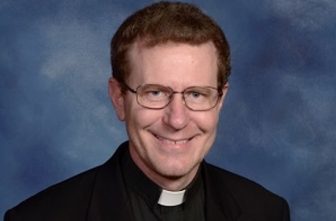In their 2003 pastoral letter, “Strangers No Longer: Together on the Journey of Hope,” the U.S. bishops applied the Gospel and papal teachings to U.S. immigration policy. The following governing principles as to how the church should respond to immigration policy proposals are explained in the letter:
1. People have the right to find opportunities in their homeland.
A person has a right not to migrate. Economic, social and political conditions in a person’s homeland should provide an opportunity for a person to work and support his or her family with dignity and safety. Efforts should be made to address global economic inequities through just trade practices, economic development and debt relief.
2. People have the right to migrate to support themselves and their families.
When people are unable to find work and support their families, they have a right to migrate to other countries and work. The right to emigrate applies when there are just reasons for it. Today, global poverty is rampant and political unrest has resulted in wars and persecution. Consequently, migrants who are forced to leave their homelands to survive and support their families must be given special consideration.
3. Sovereign nations have a right to control their borders.
The church recognizes the right of sovereign nations to protect and control their borders. However, it is not an absolute right. Nations also have an obligation to the universal common good, and thus should seek to accommodate migration to the greatest extent possible. According to Catholic social teaching, powerful economic nations, such as the United States, have a higher obligation to serve the universal common good.
4. Refugees and asylum seekers should be afforded protection.
People who flee their homelands because they fear persecution should be afforded safe haven and protection in another country. The United States should employ a refugee and asylum system that protects asylum seekers and refugees, and offers them a haven from persecution.
5. The human rights and dignity of undocumented immigrants should be respected.
People who enter a nation without proper authorization or who over-stay their visas should be treated with respect and dignity. They should not be detained in deplorable conditions for lengthy periods of time, shackled or abused. They should be afforded due process of the law and, if applicable, allowed to articulate a fear of returning to their home before a qualified adjudicator. — From www.mncc.org
For more information about immigration from a Catholic perspective, including a June 2010 statement by Minnesota’s bishops calling for comprehensive immigration reform, go to www.mncc.org/issues/immigration-sunday.




